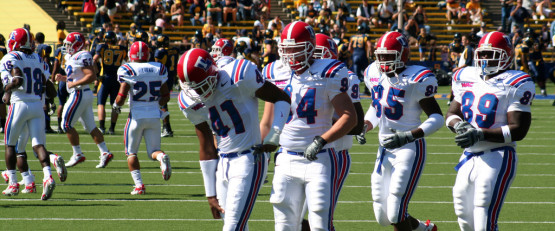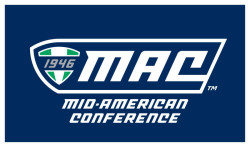Monthly Archives: January 2016
 Scott Alexander’s two pieces on Guns and States are long (as is Alexander’s thing), but interesting.
Scott Alexander’s two pieces on Guns and States are long (as is Alexander’s thing), but interesting.
We need to bring the word “Gutmensch” into the US vocabulary. It’ll look great sitting right next to “shadenfreude.”
After having thought about it considerably, I still have to disagree with Tyler Cowen pretty strongly: Doctors are not auto mechanics.
In simulations, at least, concealed carriers are actually pretty effective in conflict.
Good news! USC is no longer requiring students to disclose their sexual history.
Norway is trying to teach its migrants about how to treat women.
Huh. Maybe we do need a border wall with Canada after all.
Support from an unexpected source: Campbell’s comes out in favor of mandatory GMO label.
The VA supervisors who oversaw the catastophe on 2014 are back on the job.
Kevin Drum asks if society owes his mother reparations for raising him. Well, that’s not quite what it’s about, which is the politics of means-testing.
Michael Brendan Dougherty says that immigration is disrupting the nation state as the financial and psychological costs of emigration fall.
Yeah, if they’re good enough to fight for our country, they should get to stay. That shouldn’t be in debate.
Has the Episcopal Church been suspended from the Anglican Communion over its views on gay marriage?
According to Harvard Business Review, diversity policies don’t seem to make workplaces fairer, but they make white men feel threatened. So I guess it depends on what the aims are?
According to Anna Maria Barry, MSG was taken down by flawed science and xenophobia.
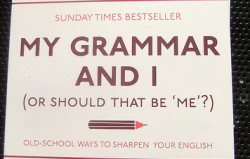 In a management discussion for OT, the subject of period-quotation syntax came up. Which is to say, the question of whether periods go in or outside of quotation marks, and when. The traditional American stance is that they always, always, always go inside the quotation mark. This was what I was taught when I was growing up.
In a management discussion for OT, the subject of period-quotation syntax came up. Which is to say, the question of whether periods go in or outside of quotation marks, and when. The traditional American stance is that they always, always, always go inside the quotation mark. This was what I was taught when I was growing up.
I was taught wrong. I mean, I was taught correctly in how the accepted syntax goes. But the accepted syntax is wrong, wrong, wrong.
This is one of those areas where British English and American English apparently diverge. In American English, we put the period inside the quotation mark in just about every instance.
He wrote that it was “weird.”
He wrote “That’s weird, man.”
No!
In Britain, apparently (?!) they put it outside the quotes.
He wrote that it was “weird”.
He wrote “That’s weird, man”.
The question of where the period appears should be entirely a matter of context. Is the period a part of the quote or not? He didn’t call it weird-period. He said it was “weird, man”! The thing that came after the “weird” was a comma. So it should be…
He wrote that it was “weird”.
He wrote “That’s weird, man.”
Does this seem crazy to you? Then consider that this is correct:
He wrote that it was “weird”!
He wrote “That’s weird, man!”
Given that periods and exclaimation points serve the same purpose as periods and commas, there is no reason to treat them differently in sentence placement. It’s also what we do with quotation marks.
Which brings me to the one organization that does it right: The American Chemical Society:
ACS Style — “Location of quotation marks is a style point in which ACS differs from other authorities. In 1978, ACS questioned the practice and recommended a deviation from it: logical placement. Thus, if the punctuation is part of the quotation, then it should be within the quotation marks; if the punctuation is not part of the quotation, the writer should not mislead the reader by inferring that it is. Place quotation marks before all punctuation that is not part of the original quotation. Place them after all punctuation that is part of the quotation.”
And hey, chemists know that the proper order of placement of things is extremely important.
I’m slowly resigning myself to the end of my Reebok shoes. It’s a hard process, but the sides are coming undone and part of the heel just came off. My endpoint for even my most favorite shoes come when I can’t walk in a puddle anymore. If we’re not at this point, we’re pretty close to it.
I’ve had these shoes since high school. In all the years since, I have never found any shoes this comfortable, despite the fact that these shoes are a size smaller (14) than I usually wear (15). They just… fit. Always have. They’re middle hightops, which I like because they give me a bit of ankle support. But the tops are low enough that I can just slip them on without having to go through the whole tying routine.
It’s hard to find any shoes that fit, though thankfully not as hard as it used to be. When I was young, Mom would take me to the shoe store and say “You can pick anything under $40” and that was cool because there was almost always something to pick. As my feet got larger, the selection got smaller. When I reached size 13, it became a matter of entering the shoe store and saying “What do you have in size 13?” and there would be a few options. Oddly enough, things improved by the time they reached 14, because stores were suddenly trying to serve the podiatrically endowed. The bubble burst at some point, and most places stopped offering shoes in sizes above 13. I can get by on some 14s, but 13s are just a no-go. So I would have to scour the countryside in search for the exception to the size 13 rule.
Until the Internet. God bless the Internet.
But what Zappos has yet to provide are shoes anything like the ones I am about to have to retire. Hightops have gone out of fashion. This is especially true for the larger sizes because the market that exists, exists for young people. The only hightops I have found are, of all things, sk8r shoes. They’re at least comfortable, though they require all of that tying business and cannot just be slipped on.
This is more of an issue than it used to be, because Lain. I used to be rather particular about my footwear. I wore steel-toed boots for the longest time. That stopped at some point after Lain became my charge. The ability to easy take shoes off and put them on became more important. I wear sandals a lot, which I used to almost never do. But sandals aren’t good in the winter time. You know what are? The Reebocks.
I’m probably going to have to give up on having high tops, which I’m prepared to do. The last non-hightops I got were pretty uncomfortable. Unfortunately, not uncomfortable in the way that you put them on and say “These are not for me” and return them. But rather, uncomfortable in the way that they are fine until you try to use them by walking around for part of a day. You think you’re just breaking them in, but they break you instead.
Subjects who waited at red pedestrian lights with no one else in sight behaved more prosocially in economic games. pic.twitter.com/5rE5F7EOP0
— Rolf Degen (@DegenRolf) January 17, 2016
https://twitter.com/WAWilsonIV/status/688826626818195457
@WAWilsonIV no, I've not
— Gabriel Rossman (@GabrielRossman) January 17, 2016
@GabrielRossman He claims that those who wait at red lights at 2am with no cars are also more likely to be genocide accomplices.
— Will Wilson (@WAWilsonIV) January 17, 2016
@GabrielRossman He vividly describes fantasizing about going to a group of Germans waiting at a red light and begging them to break the law.
— Will Wilson (@WAWilsonIV) January 17, 2016
@GabrielRossman "You need to practice breaking stupid rules when it's costless and obviously a good idea, so you're ready when it matters."
— Will Wilson (@WAWilsonIV) January 17, 2016
For this week’s Weekend Matinee, we’re rocketing off to the planet Venus in The First Spaceship on Venus!
 As we all know from TV, when we think of spousal abuse it’s important to know it’s the couples we least expect.
As we all know from TV, when we think of spousal abuse it’s important to know it’s the couples we least expect.
A new study on vouchers in Louisiana show negative outcomes for those that win the lottery compared to those that lose the lottery. Louisiana is an interesting case partly because their public system is largely charter-based. But it’s definitely something for proponents to look at.
Cobb has some interesting thoughts on Star Wars.
The mystery of the disappearing bookseller in Hong Kong. {More}
A woman’s rape claim was undermined by her Fitbit.
Before it became the site of the current standoff, residents Malheur County, Oregon, expressed a desire to become a part of Idaho. If my dream of splitting Idaho ever came true, I’d be dipping into Oregon to constitute the state of South Idaho (name possibly TBD). No plans to include Jefferson, however.
The two sides of devout Mormonism. I didn’t know that the Bundys were Mormon during the flap in Nevada, but as soon as I found out that they had a son named Ammon, things kind of fell into place.
A somewhat sympathetic take on one of the angry ranchers complaints by, of all outlets, Grist. I am sympathetic to the ranchers in this regard, but in the personal sense and not the shared-outrage sense. But even if I don’t quite by it, it was a noble effort by Grist.
Robert VerBruggen is questioning his prior support for drug decriminalization. He touches on why I take a cautious view (except for pot), but the lack of reform in our War on Drugs has me almost has me saying “Screw it.”
Well this just sounds like a delightful situation.
As bad as things are for Jeremy Corbyn’s Labour Party, at least their premier MP isn’t having to deny charges that he is plotting to kill the party leader.
This is clever enough, I guess, though they don’t get the Trumpku right. It’s supposed to be: Statement. Statement. Exclamation!
The seventh row of the Periodic Table is now complete with the addition of four new elements. Will a heavy metal element could be named after Motorhead’s Lemmy.
Huh. It seems to me that Jia Tolentino of Jezebel is less than impressed with your resolve not to read books by white men. Seriously, she makes a good point that energy is better spent actually promoting alternatives rather than expressing what you will and will not read.
There are a lot of disturbing things happening in Poland, but Pawel Swidlicki argues that the EU needs to forego intervention.
Peru is pretty pissed at Greenpeace for a stunt on some ancient landmarks.
Things are about to get a little bit tougher for Conference USA:
Old Dominion and the other 13 Conference USA schools apparently will have to make do with about $500,000 less in television revenue next season.
League TV revenue is likely to fall by about half when new contracts with Fox Sports and the CBS Sports Network take effect July 1, according to sources at three schools familiar with C-USA’s TV contract negotiations.
The two networks paid the league more than $14 million per year – about $1.17 million per school – for the past six years. Although the new contracts haven’t been finalized, negotiations are nearing completion, sources said.
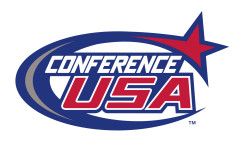
C*USA is based mostly on of the southeast and used to include members such as Louisville and Houston, but now has UTSA and Middle Tennessee. They lose programs to the AAC, and restock from the Sun Belt.
What has, thus far, prevented conferences from losing TV money, has been a combination of bringing new schools on board with comparable value and the general escalation of college sports TV contracts. The Mountain West Conference, for instance, was coming off a contract in which their product had been seriously undervalued long-term contract. Conference USA previously had replaced the five losses with six solid additions. In each case, they probably would have made even more had they not been pilfered, but the difference was not enough to negatively effect their bottom line.
There were some indications that this might be coming down the pike. Conference USA had been the marquee product for CBS Sports Network, but since the last realignment the network seems to have been uninterested in showing their games above and beyond their contractual requirements. The Liberty Bowl, the home of Conference USA’s champion since the inception of the conference in 1996, dropped them (though it looked like that might have happened anyway). Rice started flirting with the MWC, despite the closest team to them in that conference being almost 1,000 miles away. And Marshall, which I will get to below.
So what changed for Conference USA? That’s an important question because of what it means for the other conferences.

The WAC was the original home of BYU and Arizona State. They lost most of their members to the MWC and a few to C*USA, until eventually there were only two teams left. They no longer sponsor football.

The Big East was a football-basketball hybrid conference that fell apart, giving birth to another Big East that doesn’t sponsor football and the AAC.
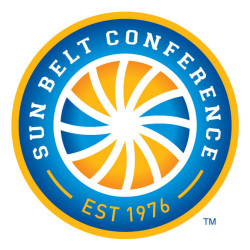
The Sun Belt, yet another southern conference, gave their best to Conference USA, but their best just wasn’t good enough. They exist mostly as a ticket to the FBS.
The main reason for their low ranking was Marshall’s lackluster schedule. What’s less clear is what aspect of their scheduling was hurting them. If it was their out-of-conference scheduling, that’s one thing because in the future they could try to schedule better opponents. But if it was their conference schedule, that’s not going to change any time soon and that is a burden shared by everyone in their conference, which bodes ill for all of them. If it requires more than two extra wins to get that NY6 slot than a rival in the Mountain West Conference (which, for reference sake, makes $1.7m per year per team), or presumably the American Athletic Conference (which makes $2.1m/yr/team), that would mean that they are virtually shut out not only of the playoffs, but a major bowl game. That makes it harder for the networks to get people to watch. In fact, that there are two conferences below them in the pecking order would mean that there are only two semi-relevant G5 conferences left.
Notably, the Mid-American Conference, theoretically one level below Conference USA in the pecking order, signed a TV deal with ESPN just last year worth roughly the same amount as Conference USA’s contract (a very significant upgrade from their previous contract, which was almost as bad as the Sun Belt’s). That suggests there may no longer be separation between Conference USA and the MAC, and the only separation that matters is between the the top two of the G5 and the remaining three and that TV deals are about to be flattened to reflect this. It also means that if they lose any more programs, they won’t be able to grab any MAC schools like Northern Illinois or Toledo (both of which are allegedly looking to move).Or it could be a sign of very tough things to come not just for Conference USA, but for all of the G5 and perhaps even the P5 conferences as well. It may be the leading indicator that the bubble is bursting, and the spigot is coming off. Which, in turn, would mean that even though they have not yet faced any defections, when it comes time to renegotiate the American Athletic Conference and Mountain West Conference may be in for a rude surprise. The same could even be true of the ACC and Big 12. It is at least plausible that these gigantic TV contracts are a result of a cable model that is imploding around them. If that’s the case, that could spell trouble for almost everybody.
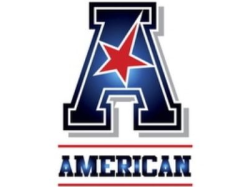
The American Athletic Conference, the successor to Big East Football, has more founding members of C*USA than C*USA does.
This is a ten-minute video about regulation and ecigarettes. The host is a little bit obnoxious, kind of like a ten year old in a 45-year old’s body pretending to be a grown-up newscaster. But if you can get past that, it’s worthwhile mostly in the guest, Canadian anti-tobacco crusader David Sweanor talking about the mentality of the anti-tobacco crusaders who have fixed the turets on ecigarettes.
There is a bit of a mixed feeling about this in some vaping circles. Simon Clark makes some really good points about vaping advocates and their propensity to swarm committers of journalistic sin in a way that is ultimately counterproductive.
He goes on to tut-tut the movement for embracing some academics that may have played fast-and-loose with science in the past to demonize tobacco and/or alcohol unfairly. Most particularly Linda Bauld, who has become an icon in vaping circles for her take-down on an awful study that came out of San Diego and some terrible reporting that occurred afterwards.
There are a number of bad studies on ecigarettes, but just in time for the New Year UCSD ran an unusually bad one, which the media accepted uncritically. San Diego Union-Tribute’s Bradley Filkes asks “What went wrong?” and more generally why the science reporting is so lazy.
Bauld came to the rescue with this piece. She’s not the only anti-tobacco crusader to join us.
Which exemplifies some of the oddities of the politics of vaping, where you have people who are still fighting the last battle (passive smoking and smoking bans) with people who have joined in on the new one. It’s a commonplace feature on his blog that vaping advocate Michael Siegal gets more crap for his anti-tobacco crusading than his strong advocacy for vaping.
Theoretically the science should be the science and those who have been wrong in the past (on passive smoking, or as is often the case smokeless tobacco) should be taken into account. From a tactical standpoint, though, allies are allies. Their history as dragon slayers makes them particularly useful allies, now that they’ve turned their spears in the opposite direction.
These leaked passages of the State of the Union read pretty grim. Maybe it's all in the delivery?
— Alex Muniz (@asmuniz) January 12, 2016
"From the wildlife refuge of Burns, Oregon, to the President’s offices at Dartmouth, a black veil of sedition, treason, and rebellion…"
— Alex Muniz (@asmuniz) January 12, 2016
"The wisdom of Goddess Columbia demands that I not countenance to the demands of those who’d rend these States’ binds! "
— Alex Muniz (@asmuniz) January 12, 2016
"Vice President Biden shall chair an emergency War Powers council of Unionist Democrats and Northern Republicans to arrest the scourge… "
— Alex Muniz (@asmuniz) January 12, 2016
"So help us God Almighty, the Eternal, MMXVI."
(And then there's a note for him to pronounce the Roman numeral date as M-M-X-V-I). Crazy.
— Alex Muniz (@asmuniz) January 12, 2016
 Academia has had a reputation for being of the left for quite some time, but it’s become noticeably more stark over the last couple of decades. More from Megan McArdle.
Academia has had a reputation for being of the left for quite some time, but it’s become noticeably more stark over the last couple of decades. More from Megan McArdle.
Mukul Devichand considers how Je Suis Charlie changed the world.
Mark Tapson argues that Huckleberry Finn should not be altered to meet modern sensibilities. Relatedly, Colleen Gillard argues that Harry Potter trumps Huck Finn, and that the Brits tell better stores.
Coming soon to SVU Texas: “The kids are turning epinephrine into a powder and snorting it up their nose. They call it episniffing.”
The crass amoral partisan and politico in me finds watching the left’s grappling with Cologne to be interesting. The other part of me just finds it all too depressing.
On a more optimistic note, here’s a piece written by a Syrian refugee and the woman offering refuge.
While I favor using pronouns that people identify with, this strikes me as another argument in favor of a safe gender-neutral pronoun. Also, while I understand the dilemma I’m not sure about the “no tie” thing. Maybe “Tie or dress”?
A man is suing his ex-wife for gender-shaming him on the Memo line of his alimony checks.
Can I figure out some way to blame this story on the TSA?
The US lost some cool buildings in 2015. Many of them were brutalist. A moment of silence, please.
Here’s your chance to serve your country and eat free “food.”
Craig Mod is moving away from digital books. I… can’t really imagine ever going back. I’m mostly looking forward to the day when ebooks start taking advantage of their greater potential. Right now they seem stuck in the land of “books, but digital” instead of what they should be “Interactive web-pages tied along a long, single story.”
Philip Cohen writes of pornography and our broken peer review system.
FLDS Leader Warren Jeffs is a real creep, it turns out.
Adoptive father David French explains how adoption is usually preceded by brokenness, explaining some of the daunting statistics on adopted children.


